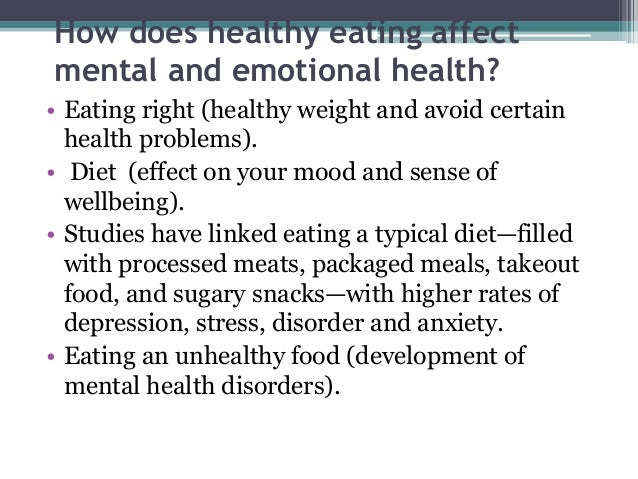& Dahn, J.R. (2005 ). Exercise and well-being: an evaluation of psychological and physical health advantages associated with exercise. Existing Viewpoint in Psychiatry. 18 (2 ), 189193. Kanning, M. & Schlicht, W. (2010 ). Be Active and End Up Being Pleased: An Ecological Momentary Evaluation of Physical Activity and State Of Mind. Journal of Sport & Workout Psychology, 32 (2 ), 253261.
& Dollar, S. (2009 ). The impact of routine aerobic workout on positive-activated affect: A meta-analysis. Psychology of Sport and Workout, 10 (6 ), 581594. Gray, J.A. (1988 ). The Psychology of Fear and Stress (second ed). Cambridge University Press: New York. Kouvonen, A., Kivimaki, M., Elovainio, M., Virtanen, M., Linna, A.
( 2005 ). Task strain and leisure-time physical activity in female and male public sector staff members. Preventative Medication, 41 (2 ), 532539. Baumeister, R.F., Campbell, J.D., Krueger, J.I. & Vohs, K.D. (2003 ). Does high self-esteem trigger better performance, social success, happiness, or healthier way of lives? Mental Science in the general public Interest, 4 (1 ), 144.
& A, F.H. (2014 ). Exercise and Self-Esteem. In: A. Clow & S. Edmunds (eds.). Physical activity and mental health. Champaign, IL: Human Kinetics. Martinez, J.T. (2014 ). Dementia and Alzheimer's Disease. In: A. Clow & S. Edmunds (eds.). Physical activity and mental health. Champaign, IL: Human Kinetics. Department of Health PA, Health Improvement and Defense (2011 ). how to become a mental health nurse.
London: Department of Health. Available at: https://www.sportengland.org/media/388152/dh_128210.pdf [Accessed on 04/11/15] Sofi, F., Valecchi, D., Bacci, D., Abbate, R., Gensini, G.F., Casini, A., et al. (2011 ). Exercise and threat of cognitive decline: a meta-analysis of prospective research studies. Journal of Internal Medicine, 269 (1 ), 107117. Rimer, J., Dwan, K., Lawlor, D., Greig, C., McMurdo, M., Morley, W.
( 2012 ). Workout for anxiety. Cochrane Database Syst Rev. Agreement No.: Art. No.: CD004366. Department of Health (2001 ). "Workout Referral Systems: A National Quality Assurance Framework." Offered at: http://bit.ly/1N31ONs [Accessed on 04/11/15] Conn, V.S. (2010 ). Anxiety outcomes after exercise interventions: meta-analysis findings. Nursing Research, 59 (3 ), 224231. Asmundson, G.J.G., Fetzner, M.G., DeBoer, L.B., Powers, M.B., Otto, M.W.
( 2013 ). Let's get physical: a modern evaluation of the anxiolytic impacts of workout for anxiety and its conditions. Depression and Stress And Anxiety, 30 (4 Browse this site ), 362373. Brudzynski, L. & Ebben, W.P. (2010 ). Body Image as a Motivator and Barrier to Work Out Involvement. Int J Exerc Sci, 3 (1 ), 1424.
Our When Did Mental Health Awareness Begin Ideas
The majority of individuals know that exercise benefits them. It enhances sleep, helps you keep a healthy weight, and increases energy levels. What you might not understand is that workout has actually also been revealed to have substantial effect on those with mental health problems, especially anxiety and anxiety. Numerous researchers, researchers, and universities have done studies on the impacts that work out has on those with anxiety and anxiety, and the results are both remarkable and extremely motivating.
Continue reading to find out about how it helps and how you can get on the road to better mental health with routine exercise. You've most likely heard about runner's high or weight-lifting euphoria, but do you understand that those are triggered by the workout themselves? You do not have to be in love with running or be consumed with weight lifting to experience those mind-boosting benefits.
In addition, low-intensity exercise has actually been revealed to stimulate and increase cell development, which is incredibly essential. Not only will cell development assist your brain to reorganize itself into feeling positive emotions and break the habit of negative idea patterns, but it will enhance your total health Learn more here href="https://goo.gl/maps/NW74ZrKgUugFucob8">https://goo.gl/maps/NW74ZrKgUugFucob8 and wellness (when is mental health awareness day). Scientists that studied individuals with depression discovered that the location of their brains that manage their state of mind (the hippocampus) was in fact physically smaller than those without anxiety.
A study done by Duke University looked at several individuals who were detected with depression. They were divided into three treatment groups: exercise, medication, and exercise & medication. After 16 weeks, all groups showed comparable improvements in depression symptoms, all of which were thought about considerable. Not only is exercise biologically helpful for you when it comes to improving psychological health, however it is an excellent method to improve your overall quality of life, including easing your depression, stress and anxiety, or other mental health concerns.
When your physical wellness improves, your mood improves. You will likely have a more favorable outlook on life and a better gratitude for the life you were given. It can be difficult to push yourself to exercise when you're experiencing a variety of unfavorable emotions, but exercise can considerably enhance even short-term struggles.
Even physical discomfort from a special needs, injury, or health problem can frequently be improved with appropriate workout. Exercise is an outleta place to go and something to do to keep your brain and body busy. It is a great diversion from the stress in your life and the mental health difficulties you have actually been handling - how much do mental health therapists make.

It can be hard to find the inspiration to get going exercising when you're handling a frustrating psychological health problem. In addition to tough mental symptoms, anxiety can cause a range of physical symptoms too, such as issues sleeping, reduced energy, body aches, appetite abnormality, and a basic absence of motivation.
Some Known Details About How To Become A Mental Health Therapist

Every bit assists, so even if you start with a five-minute walk around the block a couple of times a week, you'll be making progress. It's tough to understand precisely how little or just how much workout is needed to see the improvements in mental health. Nevertheless, a lot of research studies have had individuals do low-intensity, low-impact workouts, like walking, biking, or light running.
Be mindful that it may take a couple of weeks to see the benefits of routine workout, particularly when it comes to anxiety symptoms, however you will likely experience positive wellness results within just the very first few days. The original research study done by Duke University did a follow-up study where they looked at the original individuals for another six months after the preliminary investigation.
On the other hand, the medication-only group saw a relapse in 38% of participants and the medication plus exercise group had 31% relapse. The long-lasting impacts of exercise for psychological health are really motivating. Taking an active function in improving your health can be quite powerful, and we hope you will experience this confidence boost as you begin exercising to enhance your own psychological health.
We provide a variety of behavioral health services, including treatment of numerous psychological health conditions. Contact us now or go to an NCHS location near you. Psychological health is a vast and inclusive subject that has a great deal of various aspects to consider. While several approaches can be efficient at improving mental health, one of the most widely accepted is workout.
While long-lasting exercise routines and regular workouts are without a doubt the most handy at enhancing mental health, even just minor increases to your present activity level are useful. The quantity of enhancement that you see in your psychological health will differ based upon several elements of the people' lifestyle, consisting of current health, current activity level, increase of activity level, and more.